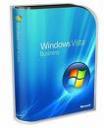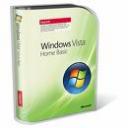Let’s Do a Comparison of Vista’s Different Versions
By comparing versions you’ll find out which version is best for your needs
It’s been a few years since Microsoft first introduced all five versions of Windows XP (Home, Pro, Pro X64, Media Center Edition and Tablet PC Edition) and just as you were starting to understand the differences between the different versions of XP, Microsoft has decided to double the version-confusion by releasing five new versions of Windows Vista (Home Basic, Home Premium, Business, Enterprise, and Ultimate). If you have been contemplating making a move to Microsoft’s newest operating system Vista, then here is what you’ll need to know about the different versions, so you can make your decision.
Different packages of features
Microsoft has designed the different set of features for the five versions to appeal to a rainbow of computer operators. Versions Vista Home Basic, Vista Home Premium, and Vista Ultimate are intended for general consumers who use their system more for personal use. Vista Business and Vista Ultimate are designed to be used by professionals and small businesses trying to better organize and facilitate business operations. Vista Business and Vista Enterprise are designed to be implemented in medium-sized and large businesses and organizations with need for a more high powered computing system to facilitate business.
You will find that all the versions of Vista include new capabilities that were either not available in Windows XP or that have been improved, including the ability to quickly find information through Instant Search and via Windows Explorer 7; security developments, including Windows Defender and Windows Firewall; additions to the user interface and internal performance; user applications like Mail and Calendar; a new Sidebar with mini applications called Gadgets; the Games Explorer, with updated games; speech recognition capabilities; improved networking support; and enhanced file and folder sharing and backup.
Time to choose your version
The decision of which Vista version is correct for you and your needs is complicated by various factors, including the relative importance of the various features to your computing life, the fact that prices vary so dramatically among versions, and whether you’re upgrading an existing Windows system or purchasing a preloaded system. For instance, if you want all of Vista’s enhanced features, $399 gets you a new edition of Vista Ultimate to play with, $200 more than what you’ll pay for the Vista Home Basic. Microsoft has obviously given this process a lot of thought, if you decide later to move up to a more power-hungry version of Vista, you can easily do so, without having to do major surgery on your system and remove the entire operating system. Microsoft after thinking about it came up with something they call Anytime Upgrade, this is the way that we loaded the Vista Ultimate operating system we currently use. All we had to do was obtain a product key over the Internet and then enter the product key for the new version and that’s it.
While you’re deciding which species of Vista is going to allow you to make the best use of Vista’s new features, we have a few rules of order that might be helpful. If you plan on upgrading to Vista on a computer with less than 1GB of RAM memory or a computer with a video card with less than 128MB of RAM, then Vista Home Basic is the one system that you’ll want to load onto your system. If your like I was for many years as a freelance writer a user of just e-mail, Web access, and some basic applications, and not in any sense of the word a power user, then Vista Home Basic will fill the bill completely.
If however, your system has at least 1GB of RAM and a high-end video card already installed that will support Vista’s Aero interface (see www.microsoft.com for details), then you will have the choice to move up from Vista Home Basic, to a more feature rich version if you wish. Do you want to the ability to work with digital photos, music, videos, maybe live or recorded TV, and all the forms of on line entertainment available today, then you’ll definitely need Home Premium at least, depending on other needs. Do you only use your computer at home, with no business or high-powered networking needs, then Vista Home Premium will best serve your computing requirements.
Do you require a system with business or networking related features and capabilities, such as the ability to connect to your system at home from far-flung settings, offline folder support, image based backup and restore, and the ability to join a domain (which houses and gives administrator control over all of the user accounts for an entire company), then Vista Business will be required for your business. If you check the versions you will notice that serious business users also loose some features: While Vista Business does include basic support for digital multimedia files, it’s short of the enhanced multimedia capabilities of Vista Home Premium.
After you have had time to check all five versions of Vista out, you’ll notice Vista Enterprise is actually pretty similar to Vista’s business version. Microsoft has added BitLocker Drive Encryption, a security feature that provides transparent data and drive security, protecting the valuable files stored on your protected drive from being viewed offline by cybercriminals.
Do you need to leap over computing heights everyday and your boss thinks you wear an S on your chest, then your what Microsoft calls a power user and then you’ll want to hand over a few more shekels for Vista Ultimate.
Do you have multiple systems in your computing environment then you may want to choose a particular version for each system. You may want Vista Ultimate on your main PC, Vista Home Premium on the laptop you carry around, and Vista Home Basic on your progeny’s PC. This is not a surprise considering the differences in prices between the five feature rich versions of Vista, you’ll certainly want to find the most cost effective version that will meet your needs.




